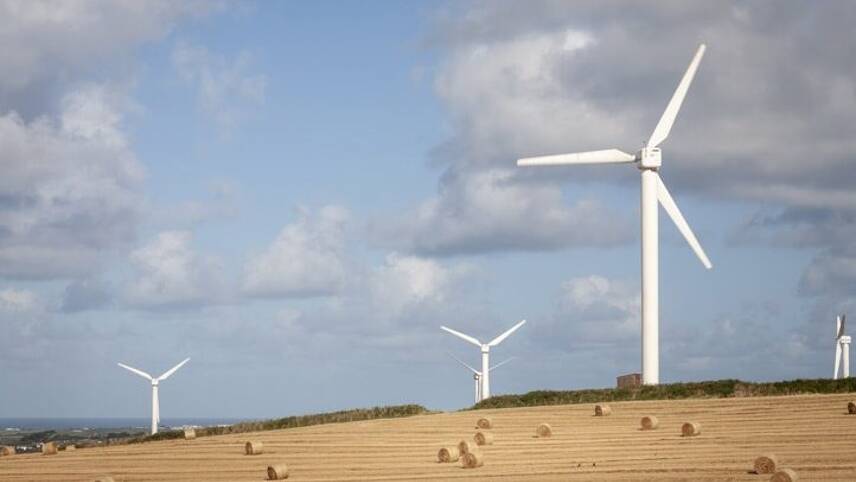Register for free and continue reading
Join our growing army of changemakers and get unlimited access to our premium content

The four weeks of April has seen coal account for less than 1% of electricity generation
The National Grid confirmed this morning that the UK surpassed the previous record set in June 2019 of 18 days, six hours and 12 minutes. Currently, the UK’s energy system has not used coal for power generation for more than 440 hours.
The four weeks of April has seen coal account for less than 1% of electricity generation in the UK, with low-carbon sources accounting for around 57%.
In May 2019, the UK went a fortnight without coal-fired power for the first time since the pre-industrial period. That record was then surpassed again a month later.
Great Britain experienced its first coal-free day following industrialisation in April 2017 and, since then, has broken its coal-free generation records several times. In fact, the first three months of 2019 saw the UK electricity grid clock up 650 hours of coal-free generation – more than was achieved during the entirety of 2017.
The record is partly attributable to a severe fall in electricity demand due to the coronavirus lockdown, but also because of a spike in solar generation. Solar use in the UK broke an all-time peak generation record on Monday (20 April), accounting for almost 30% of UK electricity demand
At 12:30 on Monday, solar generation reached a peak of 9.68GW, according to the Sheffield Solar live PV generation tracker. The previous record was set at 9.55GW recorded on 13 May 2019. At the time of the peak, solar was meeting almost 30% of UK electricity demand.
In fact, the National Grid may send out a call to action to turn off some low-carbon generation in order to avoid an overload.
Industry reaction
Commenting on the record, the STA’s chief executive Chris Hewett said: “Solar is playing a critical role in delivering a fossil-free grid and cleaner, cheaper power to Britain. As we look towards a net-zero future, solar will become an increasingly greater part of the energy mix, tackling high power prices, climate change, and biodiversity loss.”
“With the Government beginning to consider how best to kick-start the economy following the Covid-19 crisis, it has a golden opportunity to place renewables at the heart of its recovery package. Solar in particular can provide a glut of quality green jobs and growth at short notice, with your average solar park able to be built in less than six months, and home installation in less than a day. The industry is ready to help drive the revival.”
EnAppSys’s, which compiled the data, director Phil Hewitt said: “Whilst hard coal (which is more expensive to extract in Europe) has been declining, the cheap extraction costs and social and political cost of closing down the lignite industry has meant that this area of the European fuel mix has taken longer to reduce.
“The speed of transformation of the power industry and the ending of its long relationship with coal has been one of the stories of the UK’s transformation into a green energy pioneer. It is difficult to see why any coal stations should run again at the moment as the low demand due to the coronavirus crisis continues along with the low prices of summer. This year should be the first year with a coal-free month since coal was first used to create electricity continuously in London by Thomas Edison at 57 Holborn Viaduct in 1882.”
Research consultants Delta-EE’s director Andy Bradley added: “While we welcome today’s latest coal-free record, we need to acknowledge this has been in part driven by the drop in demand caused by COVID-19. However, recent sunny and windy weather has seen renewables’ grid share rise with solar contributing nearly 10GW last Monday. This highlights that we have a resilient grid able to cope with greater renewable capacity.
“The changing grid profile has recently resulted in consumers being paid to use electricity – a sign of a ‘new normal’ for the grid. It’s not only oil prices that can turn negative.”
Dr Jonathan Marshall, Head of Analysis at the Energy and Climate Intelligence Unit (ECIU) said:
“Today’s record coal-free run is another remarkable milestone in the decline of coal power in the UK, and it won’t be the last. But underneath the latest record lies a bigger story, that the operation of national energy systems with dwindling supplies from fossil fuels is rapidly becoming the norm. No longer are there questions around the ability of grid operators to keep the system going; instead, attention is turning to rapidly learning as much as possible from conditions where low-carbon power dominates.
“Analysts have suggested that the coronavirus crisis will accelerate the energy transition [2], as systems with renewables contributing most of the power output offers valuable practice in managing the grid of the future. It is now just a couple of years until the end of coal in the UK, with gas set to play a mere bit-part in power generation by the end of the decade. It is moments like these that can provide valuable insights into keeping the lights on as we move towards a net-zero economy.”
Matt Mace


Please login or Register to leave a comment.